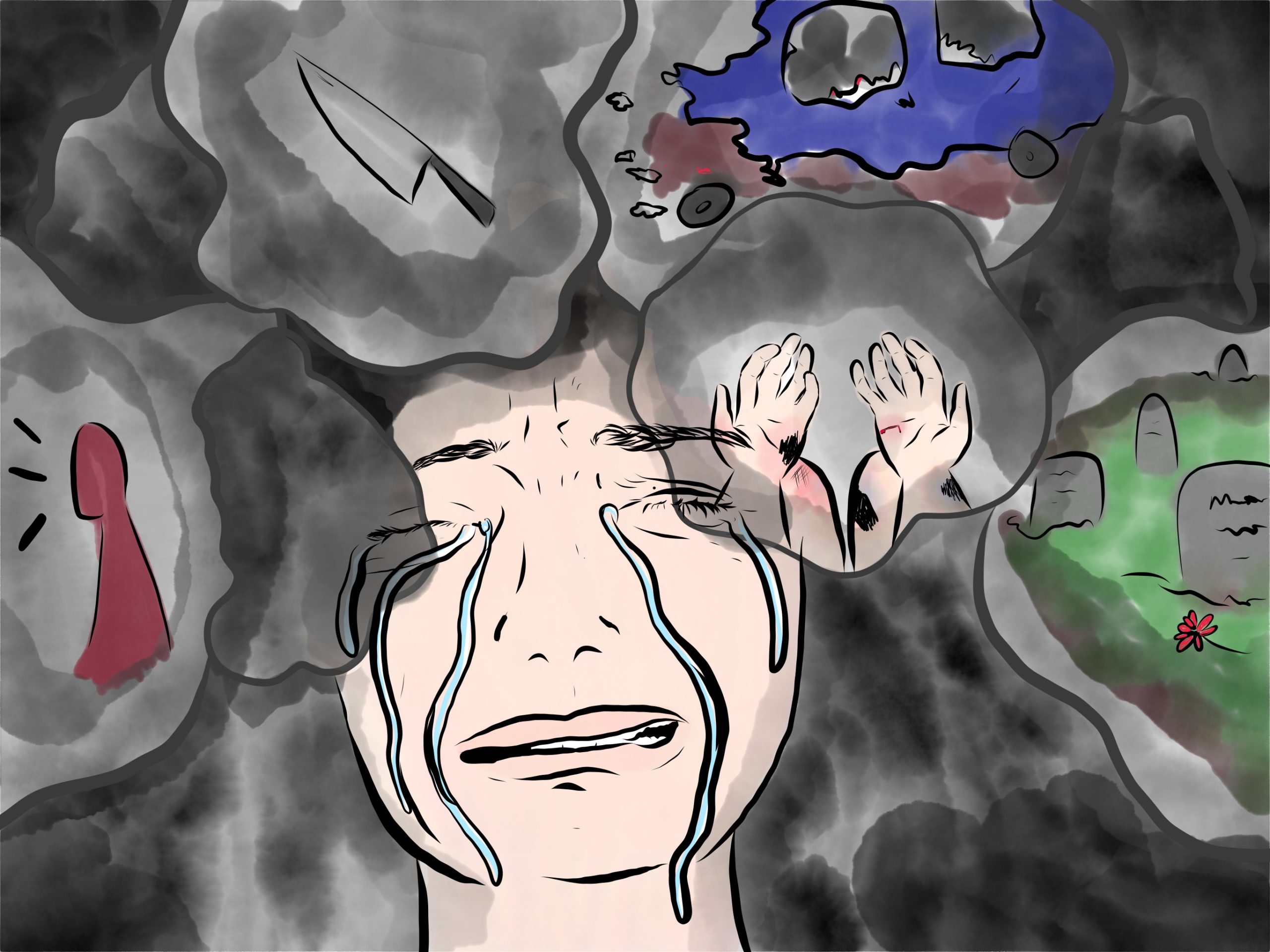By: Lizzy Boudah, Staff Writer
Imagine you’re walking down the road in July, when most of your neighborhood is having a bunch of festivities and celebrating with beautiful shows of light and the loud booms of fireworks in the distance. You find yourself captivated by the sensory admiration of all that is happening until you see a neighbor shutting their curtains and seeming to move frantically and covering their ears. Your neighbor is a veteran recently home from war, and is struggling. Imagine you’re in a health class discussing eating disorders or sexual health. One of your classmates starts to tremble in the back of the room and asks to step out with a shaky voice. They’re in recovery from starving themselves, an unhealthy habit picked up after being so depressed after being raped. This is Post Traumatic Stress Disorder (PTSD), and can be common across people both young and old.
When people think of post traumatic stress disorder, they usually think of soldiers and perhaps other worldly traumatic events such as 9/11, Hurricane Katrina, or even the tsunami in Japan back a few years ago. What some may not understand is that it doesn’t take a massive event such as these to be diagnosed with PTSD. It can come from childhood trauma, sexual assault, or even a car accident.
PTSD can come in flares that trigger panic attacks, depressive episodes, dissociation, etc. It is important to be tolerant of your nervous system, being careful not to get too wrapped up in news coverage of certain triggers, and especially staying away from alcohol (ADAA). Sometimes the symptoms for PTSD don’t show immediately, they can be stagnant for a few months but then surface at a certain trigger, and they’re usually symptomatic for a significant period of time.
College students can also develop PTSD due to personal conflicts. In fact, according to Affordable College Online, up to 17% of college students suffer from post traumatic stress disorder, which is also a much higher percentage than the average population (ACO). Some of the symptoms may include flashbacks, nightmares, insomnia, depression, anxiety, or even severe fear surrounding their traumatic situation. For example, if one is in a severe vehicle accident and a death occured but not their own, the individual may develop PTSD directly related to driving and being on the road.
When a college student has PTSD, any number of these symptoms can arise. A trigger could come out of nowhere, such as a class, with peers, or sometimes in assignments. These triggers can lead to panic attacks, which can lead to situations in which the student can not perform to the best of their ability. This, in turn, can lead to anxiety attacks and overall stress and it is important to speak to your doctor for a proper diagnosis before discussing said diagnosis with your professors, should anything arise.
It is important to note that PTSD symptoms and flares are likely different between individuals. One student with the diagnosis may have completely different symptoms and triggers, thus making management different for everyone. Always seek proper diagnosis from your primary doctor/psychiatrist if you feel you may suffer from PTSD and are considering any kind of medication. Do not, under any circumstances, try someone else’s prescription even if they say they have PTSD.
Coping mechanisms can be much like those you would seek for other mental illnesses. Creative outlets often help to distract from the internal battle with PTSD, such as painting your emotions, or writing, or ceramics (which is fun, because it not only allows you to focus your bad energy into clay, but if you feel angry, you can always smash it and start new)! Reading a book for pleasure can also stimulate and perhaps calm you down. Of course, there is always physical activity such as walking campus, using the gym, or yoga to relieve some of the stress.
If you get diagnosed with PTSD, seek out help with the DSC at USM. Disabilities Services may be able to offer you accommodations in case of a triggering event during class and they can provide you with more information regarding how the school can aid you, to make sure you are most comfortable in class and continuing to thrive in your classes. If you feel you need help, also consider contacting USM Health and Counseling. All contact information are as follows:
- Gorham Health and Counseling (Upton): 207-780-5411
- Portland Counseling: 207-780-4050
- Disability Services Center: 207-780-4706
Sources:
https://www.affordablecollegesonline.org/college-resource-center/college-student-ptsd/
https://adaa.org/understanding-anxiety/posttraumatic-stress-disorder-ptsd/symptoms

